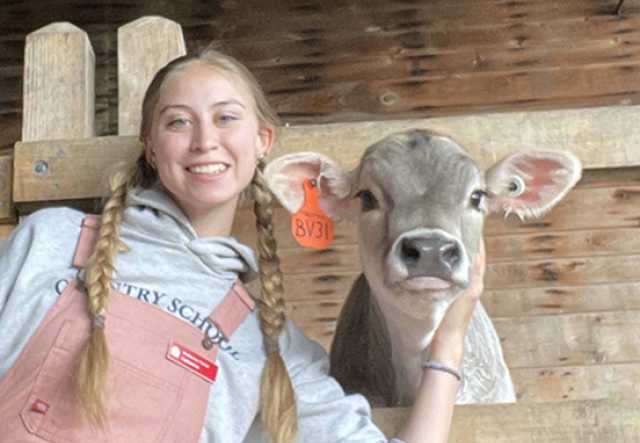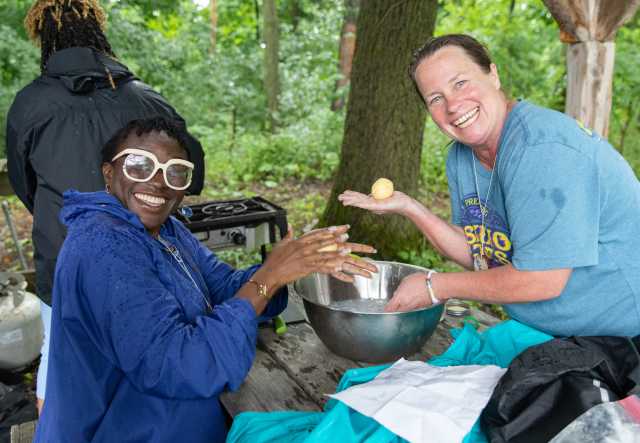What Our 2023 Summer Fellows Learned
This past summer, Shelburne Farms welcomed four fellows—college students from nearby Middlebury College and the University of Vermont—to our campus for learning, a program we’ve run for several years. While leading children of all ages in our summer camps and living here on the farm, fellows gain a unique, immersive perspective on Education for Sustainability, and lasting lessons about what it means to be transformed by a place.
Here, 2023 fellows share their reflections on this experience.
Emma Von Licht, UVM ‘24, Elementary Education major
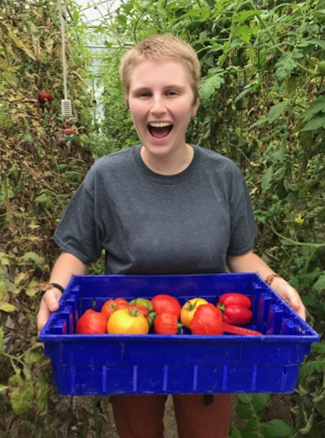 Something that changed during this experience: I feel like I can do anything I put my mind to. Before this summer, I had doubts about my abilities and how I could apply my love for learning, helping children, and our natural world in my career. My options felt limited and constrictive. Working at Shelburne Farms made me realize that the world is much more expansive than I thought it was. There are pockets of opportunities wherever you go; sometimes you need to find them or even create them yourself. Your brain is unique and powerful and your talents are needed in many different places and facets. I’m anxious to explore those pockets and find my niche. I recognize that my niche might change, but I know that Shelburne Farms will always be a part of my journey to understanding myself and my place in our world.
Something that changed during this experience: I feel like I can do anything I put my mind to. Before this summer, I had doubts about my abilities and how I could apply my love for learning, helping children, and our natural world in my career. My options felt limited and constrictive. Working at Shelburne Farms made me realize that the world is much more expansive than I thought it was. There are pockets of opportunities wherever you go; sometimes you need to find them or even create them yourself. Your brain is unique and powerful and your talents are needed in many different places and facets. I’m anxious to explore those pockets and find my niche. I recognize that my niche might change, but I know that Shelburne Farms will always be a part of my journey to understanding myself and my place in our world.
What the fellowship added to her coursework: As an elementary education major, I’ve learned a lot about kids. However, it has mostly been within the context of a classroom. Throughout my fellowship at Shelburne Farms, I learned that the world is our classroom. I even saw the transparency of the cheese-making process through the glass in the cheese-making room and through the words and actions of the cheese-makers and dairy farmers. I saw the power that it had to teach people about systems and cycles. When people notice how communities function, they can begin to feel a sense of ownership in their place. This connects to how I want to create my classroom community. Transparency and empowerment are at the core of my teaching philosophy.
What’s next, after graduation: I want to start out as a classroom teacher and then see where the tides take me. My goal as a public school classroom teacher is to incorporate my values surrounding place-based education (PBE) and bring them to a student population that doesn’t normally get to experience them. For example, I taught an integrated science and social studies unit this fall about geology and Vermont history titled, “What is a legacy?” One day, I brought my students to a cemetery where we explored what Vermont’s state rocks (marble, granite, slate) look like in real life and how they help commemorate the legacy of the people who passed away. PBE doesn’t have to be some super expensive, intricate process. PBE can just be going outside and connecting with your community in ways you wouldn’t normally. I wouldn’t have thought to visit a cemetery with my class, but once you realize how interconnected and interdependent everything is, you can learn from anything and anyone. Shelburne Farms helped me realize that.
Emma is currently student-teaching full-time in the South Burlington School District. She writes, “I’m in a fourth-grade classroom and having the time of my life. I’m being challenged in new ways, expanding my horizons, and growing a ton professionally and personally. I’m graduating in May and I hope to stay in Vermont.”
Maeve Cain, UVM ‘24, Environmental Studies major
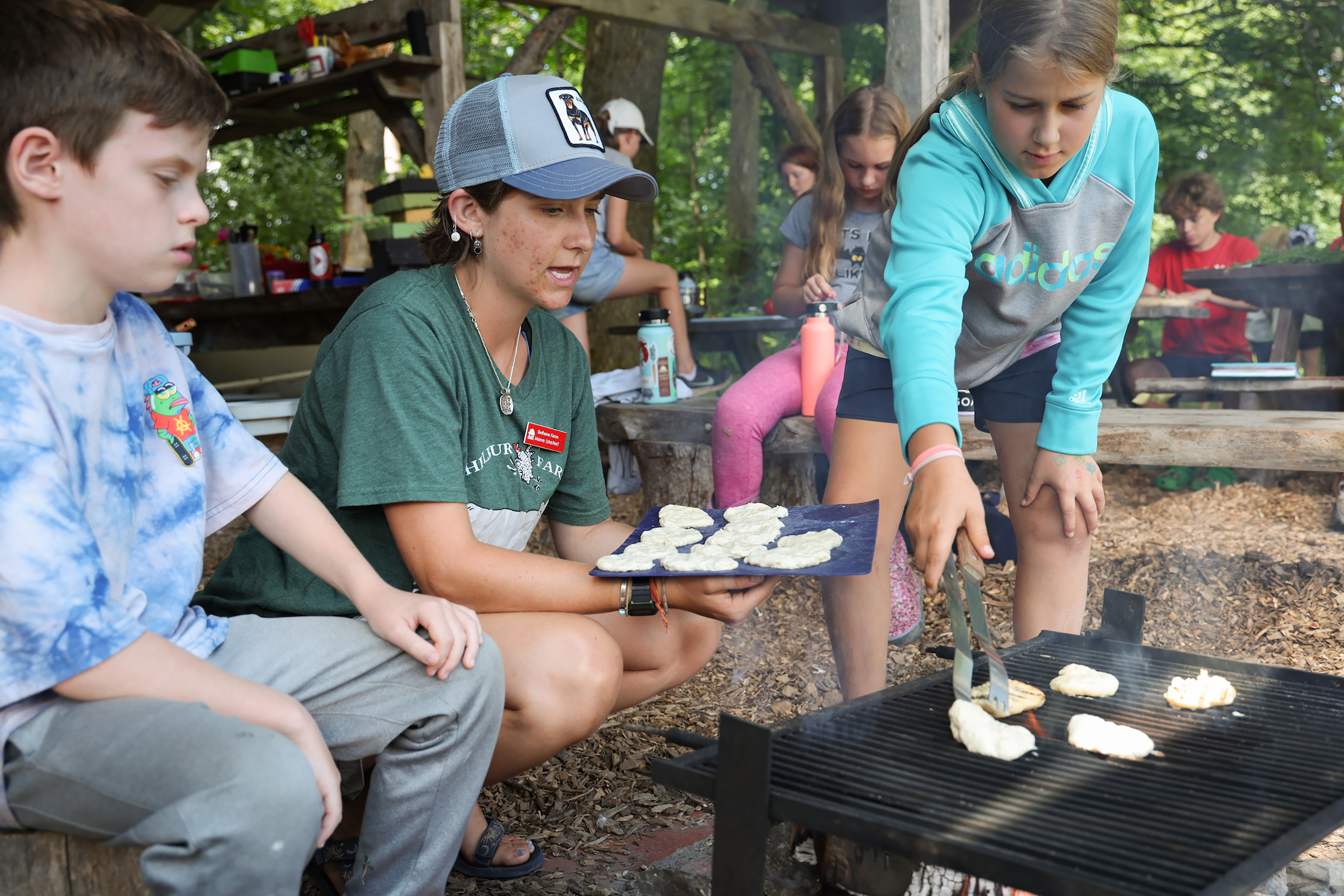
What the fellowship added to her college coursework: Having three months to watch the power of outdoor play and learning the exact science behind the ways it is beneficial for young bodies and minds is a fascinating applicable observation. By being outside kids are getting curious about local ecosystems and also challenging themselves by playing and exploring. This experience has furthered my belief that some of the most effective learning can be done outside. Any subject in school can be taught outside and helps establish a child's sense of place and community while doing so.
On being part of a team: The education team at Shelburne Farms is so wonderful. The interpersonal connections that we made this summer established a trust that enhanced how effective we could be as a team. Knowing everyone there had my back was incredibly comforting and we all understood what each of us may need throughout the day to feel best supported. I feel lucky that I was able to be a part of such a supportive system and hope I’ll find ones like it in the future.
Meaningful memories: Some of my most memorable experiences were when a kid would be resistant to play outdoors or engage with the group. Throughout the week they would often open up and embrace the group and their ability to determine what kinds of activities we could do. It is so unique to have a structure that changes every week based on the interest of the campers.
Maeve is finishing her last year at UVM with a minor in food systems and a certificate in place-based education. She writes, “After graduation, I hope to continue in outdoor education in some sense or at least be able to work outside. My experience at Shelburne Farms has shaped me to better understand where my passions fit into my community and for that I am thankful.”
Emma Cortina, Middlebury ‘25, Creative Writing major
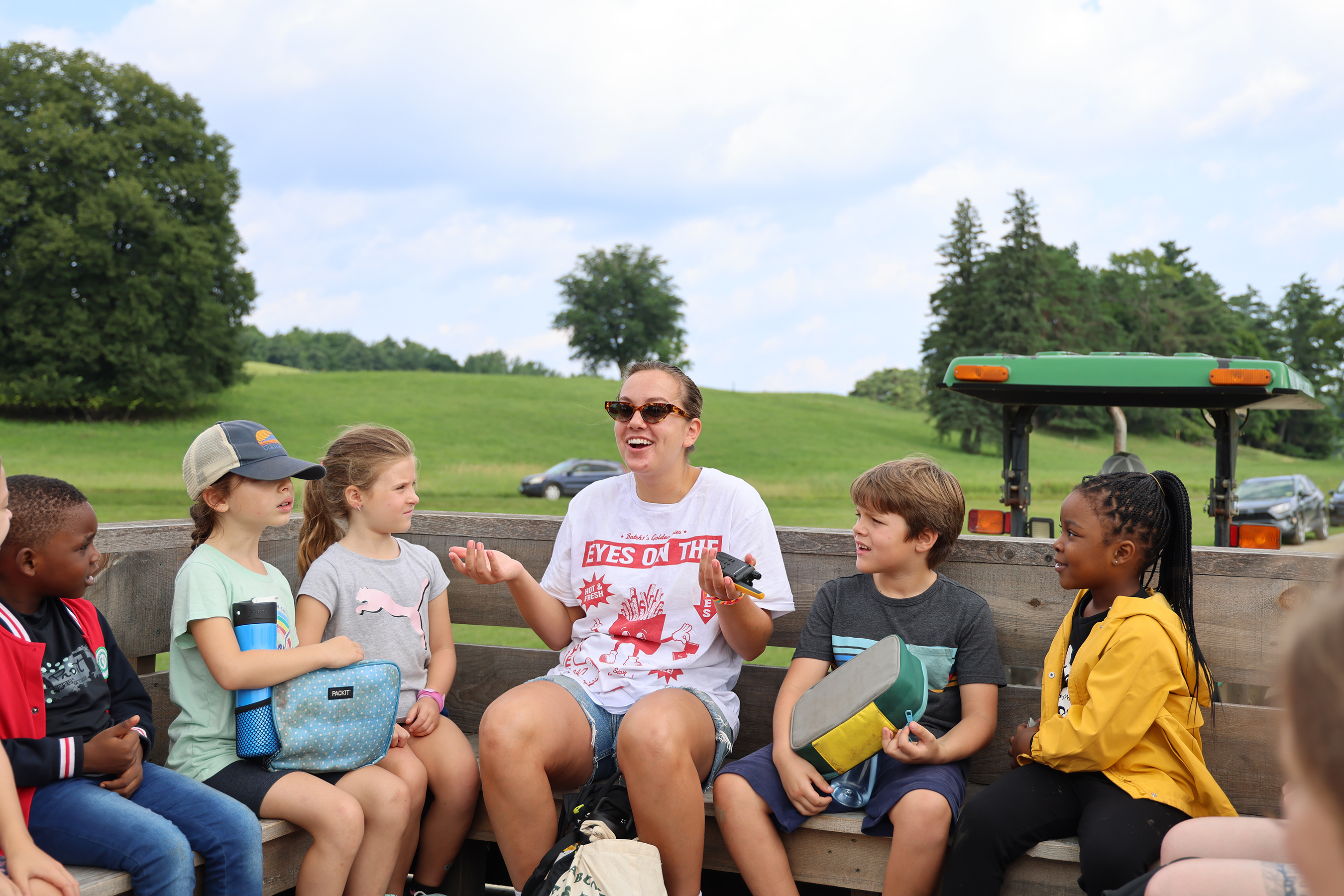
What the fellowship experience added to her college coursework: My experience during the fellowship enhanced my creativity. Living on the farm was inspiring and provoked lots of creative reflection. Also, I started to take note of silly things children would say that made me smile. Experiencing children's creativity firsthand each day caused me to reflect on and rethink my own creative process, and to not be so rigid.
Something you see differently post-fellowship: I feel a larger appreciation for nature and education than I did before. I notice little bugs or creatures scurrying on the ground that I previously would not have been aware of. I also love cows so much! In terms of education, I feel that my time at Shelburne Farms really expanded my awareness of the symbiotic relationship between student and teacher in a way I hadn't seen before. As a full-time educator, I was lucky to experience the growth of new kids each week of the summer.
A lasting lesson: This experience has enhanced my appreciation of place-based education, and the meaning it holds. The children who were able to experience a week at Shelburne Farms left with a larger appreciation of and fascination with nature and the world around them. They also understood their role in this ecosystem. I don't think the same outcome can be achieved in a classroom setting.
Emma, who is now back at Middlebury, shares: “I've joined Club Volleyball and Middlebury Discount Comedy, a sketch writing group. I'm having lots of fun with my busy schedule and exploring areas in and around Midd that I haven't seen before.”
Naomi Gordon, Middlebury ’24, Architecture and Geography major
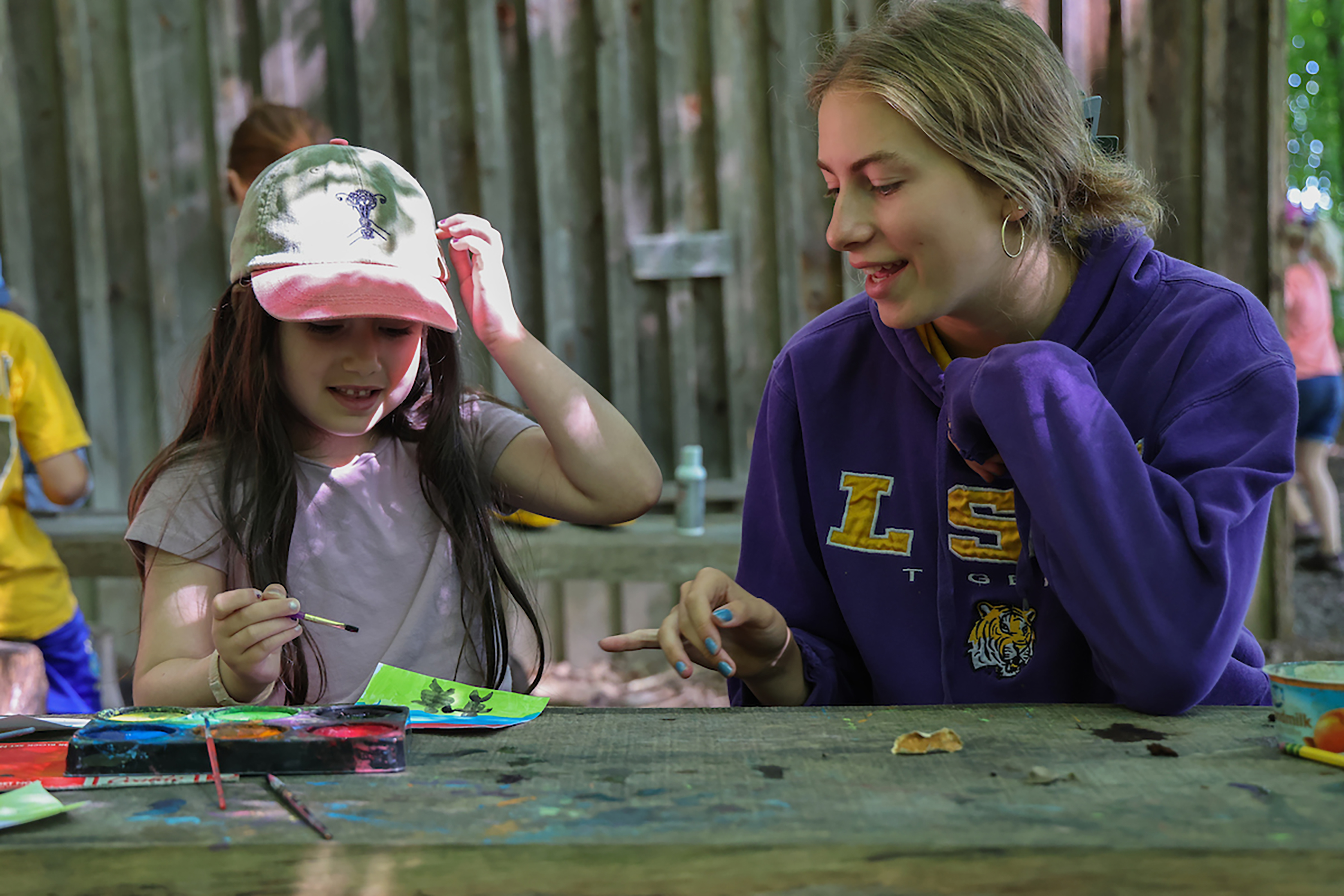
A memorable moment: I loved any time we took campers to the dairy. I remember one camper not being terribly enthused by the idea of hanging out in the calf barn where they declared “it didn’t smell too good.” But, after watching their peers make friends with the newest additions to the farm, it did not take long for them to be enraptured by a calf named Hawaii. Watching the child bond with Hawaii was the sweetest thing. I remember leaving and the camper exclaiming, “Will we go back sometime soon? Hawaii and I are going to miss each other.”
What this fellowship has added to her college coursework: This experience has given more life to what I am learning at Middlebury. In my education classes, I am constantly thinking about interactions I had with campers this summer, and I have a much stronger idea of what type of teaching benefits children the most. For my architecture class, when I am designing spaces for children, I think about ways in which kids like to move about, and I feel I have a deeper understanding of what their needs are. Beyond those two areas of study, I am always thinking about my Shelburne Farms experience because I gained a stronger macro-level understanding of how our ecosystems, built environments, and communities need to interact with each other in order to create a sustainable harmony.
Before vs. after the fellowship: After my time at Shelburne Farms, I am thinking about the ways in which we choose to use our land. Living on the farm, I got to witness the changes on the land from sunrise, to sunset and throughout the night, until it all repeated again. With 1,400 acres, Shelburne Farms has put about every acre to use for the common good, which is magical. It was amazing to see visitors and campers alike, from many backgrounds, enjoy the beauty in Shelburne Farms and Vermont’s landscape.
Naomi is back at Middlebury, soaking up her last year as a student in Vermont. She writes, “I’m completing my Architecture thesis, spending time with the Addison County Restorative Justice Board, and hanging out with my Community Friend (a local student from Cornwall). And, getting outside as much as I can! Next year, I hope to be working at a nonprofit organization.”

